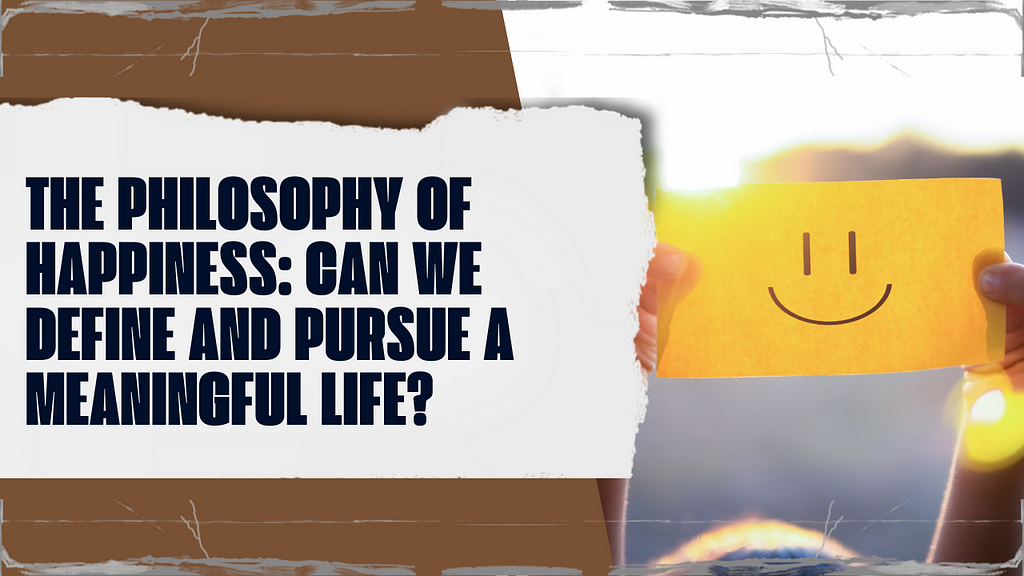
The pursuit of happiness has been a fundamental aspect of human existence, driving individuals to seek meaning and fulfillment in their lives. Philosophers, psychologists, and thinkers throughout history have grappled with the elusive nature of happiness, attempting to define it and understand the path to a meaningful life. In this exploration, we delve into the philosophy of happiness, questioning whether it can be defined and if a meaningful life is attainable.
Defining Happiness: A Multifaceted Concept
Happiness, as a concept, is inherently multifaceted, encompassing emotional, psychological, and even spiritual dimensions. Philosophers like Aristotle argued that eudaimonia, or flourishing, is the ultimate goal of human life. For him, true happiness comes from living in accordance with one’s virtues and fulfilling one’s potential. Utilitarians, on the other hand, define happiness in terms of pleasure and the absence of pain, emphasizing the importance of maximizing overall well-being.
Example: Consider a person who accumulates wealth but lacks meaningful relationships. From an Aristotelian perspective, this individual may not be truly happy, as their life lacks the richness that comes from social connections and personal growth.
The Pursuit of Pleasure vs. the Pursuit of Meaning
One of the ongoing debates in the philosophy of happiness revolves around the choice between pursuing pleasure and seeking meaning. Hedonism suggests that the maximization of pleasure is the key to a happy life, while existentialism argues for the importance of creating one’s own meaning and purpose.
Example: Imagine a person who spends their days indulging in hedonistic pleasures but feels a lingering sense of emptiness. According to existentialist philosophy, this individual may find true happiness by discovering a sense of purpose and contributing to something larger than themselves.
The Role of Relationships and Connection
Many philosophical perspectives on happiness emphasize the importance of relationships and social connections. Positive psychology research also supports the idea that strong interpersonal bonds contribute significantly to overall well-being.
Example: Consider the happiness derived from a deep and meaningful friendship. This relationship not only provides emotional support but also adds a layer of meaning and purpose to one’s life, aligning with various philosophical views on happiness.
Challenges and Obstacles on the Path to Happiness
The pursuit of happiness is not without its challenges. Existential dread, societal pressures, and personal struggles can all impede the journey to a fulfilling life. Philosophers such as Viktor Frankl have explored the idea that finding meaning in suffering can be a powerful force for happiness.
Example: Reflect on an individual facing adversity who, instead of succumbing to despair, finds purpose in overcoming challenges. According to Frankl’s logotherapy, this person has tapped into a deeper source of meaning that contributes to their overall happiness.
In the quest for a meaningful life, the philosophy of happiness serves as a guiding light, offering diverse perspectives on what it means to lead a fulfilling existence. While the definition of happiness may remain elusive and subjective, the common thread across philosophical traditions is the acknowledgment that meaningful connections, purposeful living, and personal growth play pivotal roles in the pursuit of a truly happy life. As individuals navigate the complexities of their existence, the wisdom gleaned from centuries of philosophical inquiry can serve as a compass, guiding them towards a life rich in purpose and contentment.
The Philosophy of Happiness: Can We Define and Pursue a Meaningful Life? was originally published in EpicurusEcho on Medium, where people are continuing the conversation by highlighting and responding to this story.